Jun 13, 2025
Israel Strikes Iran Over Nuclear Threat: A Critical Escalation in Middle East Tensions
In a dramatic and unexpected development, Israel has launched a series of air strikes targeting nuclear sites and military bases in Iran. This significant military action, reported by 7NEWS Australia, marks a new chapter in the already tense relationship between the two countries and raises serious concerns about regional stability and global security. The strikes come amid Israel’s claims that Iran was only days away from developing a nuclear bomb, a threat Israel describes as existential.
Table of Contents
- Background: The Build-Up to the Strikes
- Details of the Strikes and Their Impact
- International Reactions: The United States and Australia Respond
- What’s Next? Israel’s Preparedness and Potential Retaliation
- Understanding the Broader Context of Israel-Iran Tensions
- Key Takeaways
- Frequently Asked Questions (FAQ)
- Further Reading and Related Articles
Background: The Build-Up to the Strikes
For months, Israel had warned of the possibility of military action against Iran if diplomatic efforts failed to halt Tehran’s nuclear ambitions. The speed and scope of the strikes, however, took many by surprise. Israeli air force jets reportedly targeted multiple locations across Iran, with a focus on the capital city, Tehran.
Israel asserts that the strikes were aimed at both military installations and nuclear sites, which Israel believes are critical to Iran’s nuclear weapons program. According to Israeli military leadership, Iran was dangerously close to developing a nuclear bomb—possibly within a matter of days. This proximity to nuclear capability was framed by Israeli officials as a direct threat to their nation’s survival.
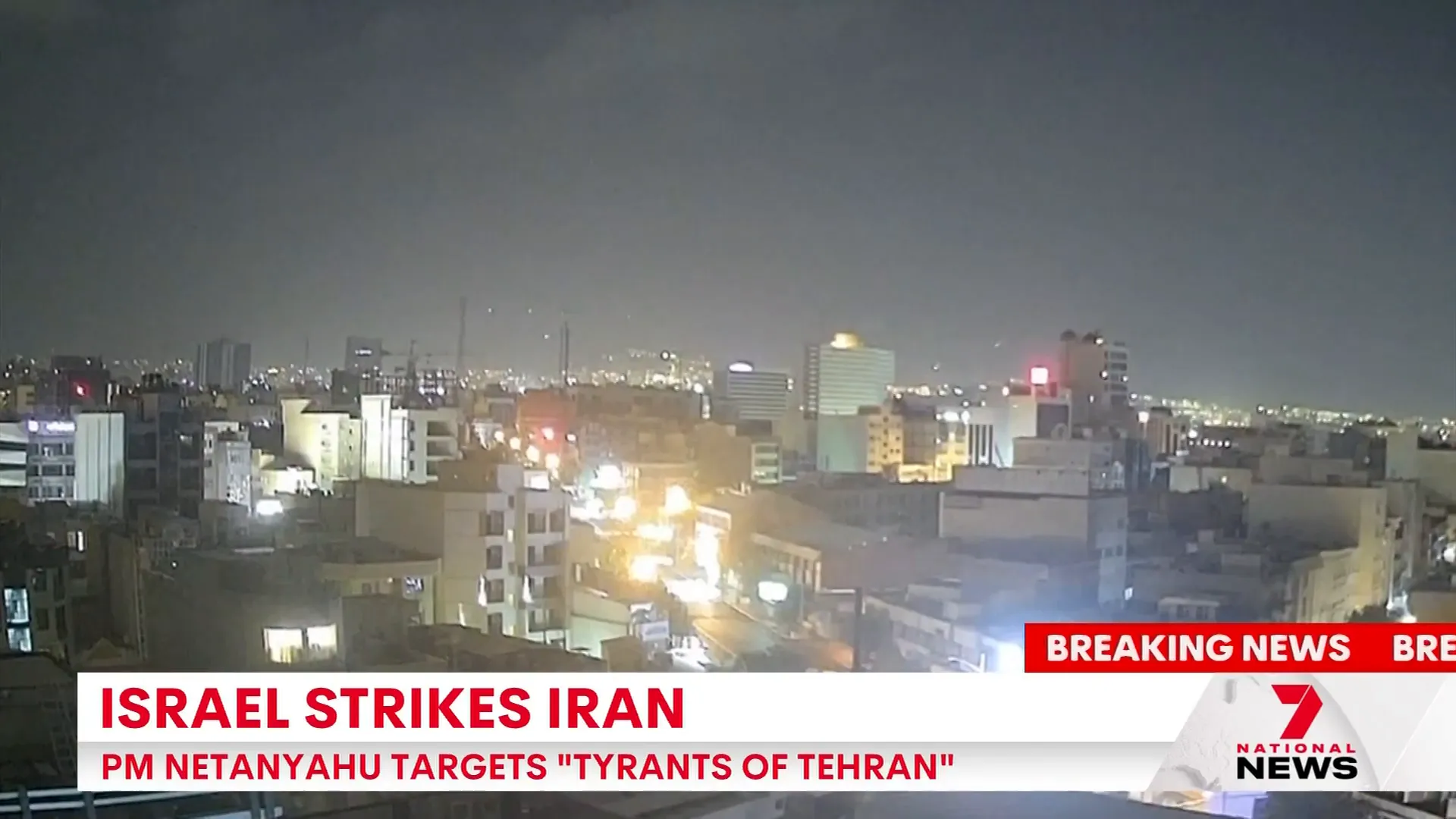
Details of the Strikes and Their Impact
The attacks reportedly hit several strategic targets, including the headquarters of Iran’s Revolutionary Guard, an elite military force that plays a central role in Iran’s defense and nuclear activities. Reports suggest that the commander of the Revolutionary Guard was killed in the strikes, a development that could have profound implications for Iran’s military command structure.
Iranian sources have claimed that the strikes also hit residential areas, resulting in civilian casualties, including children. These allegations highlight the potential human cost of the conflict and raise serious humanitarian concerns.
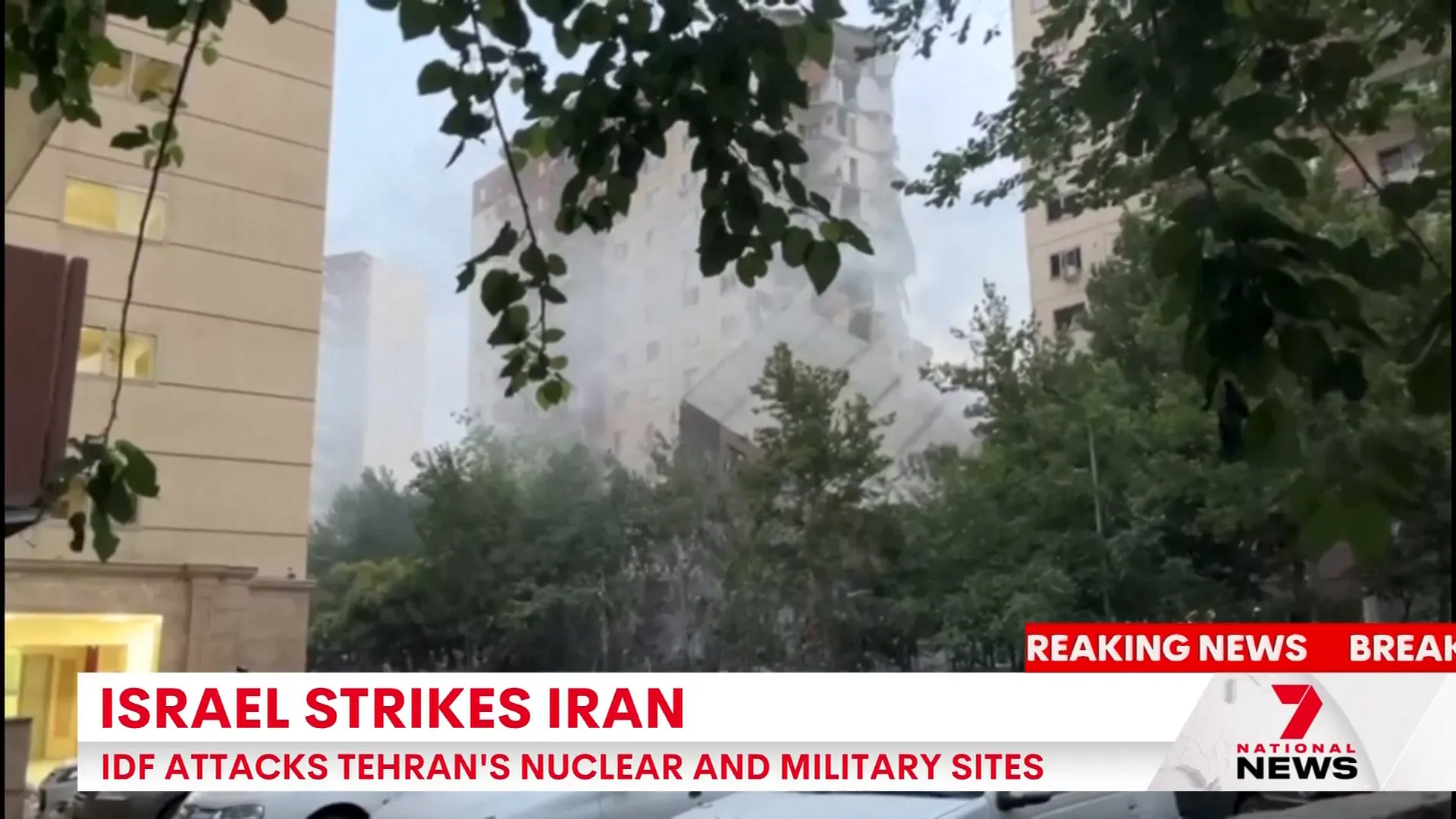
Prime Minister Netanyahu’s Address: Framing the Threat
Shortly after the strikes began, Israeli Prime Minister Benjamin Netanyahu addressed the nation. He emphasized the urgency and gravity of the threat posed by Iran’s nuclear program, stating:
“If not stopped, Iran could produce a nuclear weapon in a very short time. It could be a year. It could be within a few months, less than a year. This is a clear and present danger to Israel’s very survival.”
Netanyahu also invoked historical fears, referencing the Jewish people’s experience with nuclear holocaust during World War II, underscoring the existential nature of the threat as perceived by Israel.
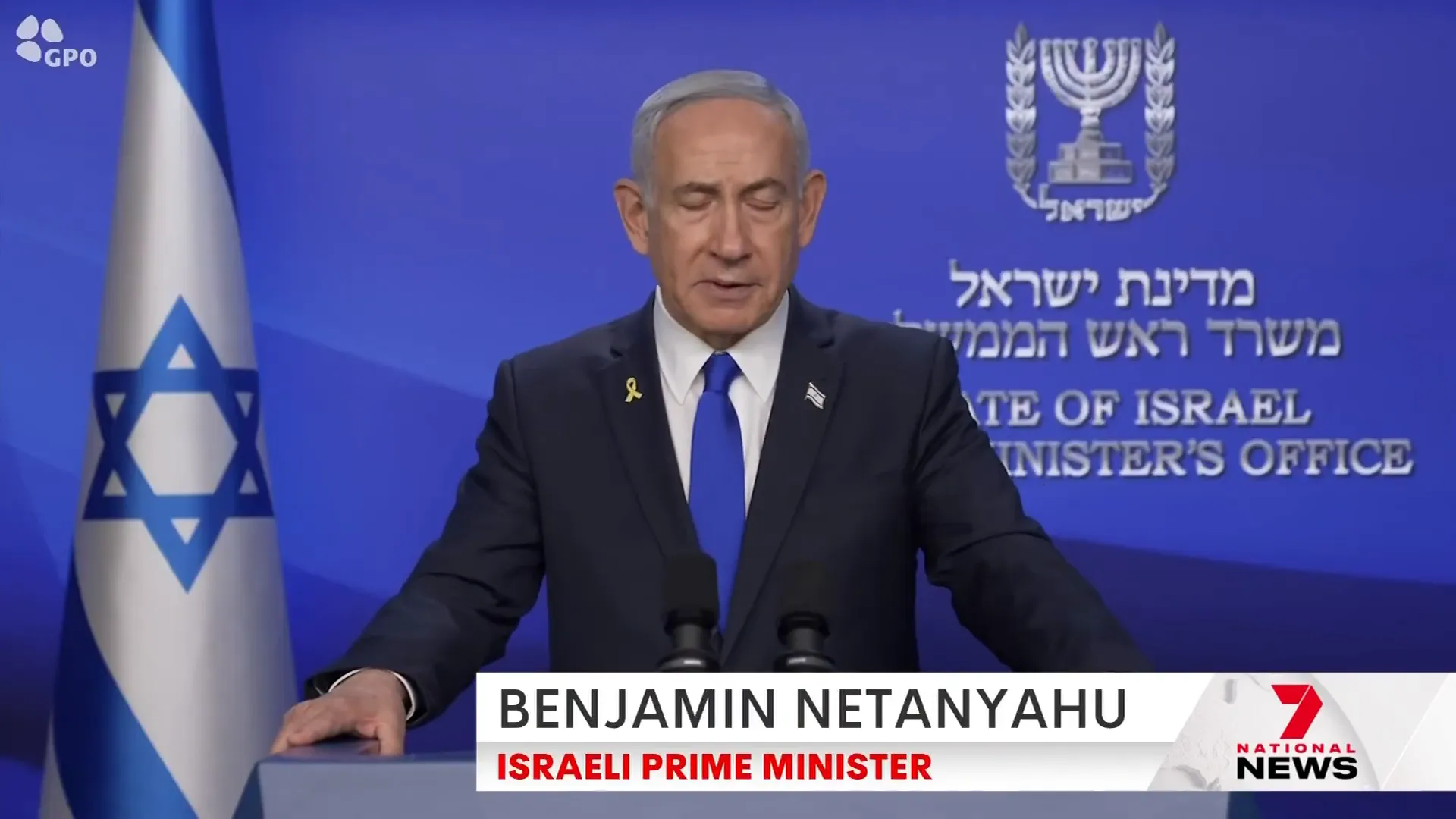
International Reactions: The United States and Australia Respond
The strikes have sparked immediate international reactions, with the United States notably distancing itself from the military action. Former President Donald Trump expressed opposition to direct military engagement, preferring diplomatic solutions and a deal with Iran.
Marco Rubio, the current U.S. Secretary of State, issued a statement clarifying that the United States was not involved in the strikes and emphasized protecting American forces stationed throughout the Middle East. He noted that Israel had informed the U.S. that the action was deemed necessary for its self-defense.
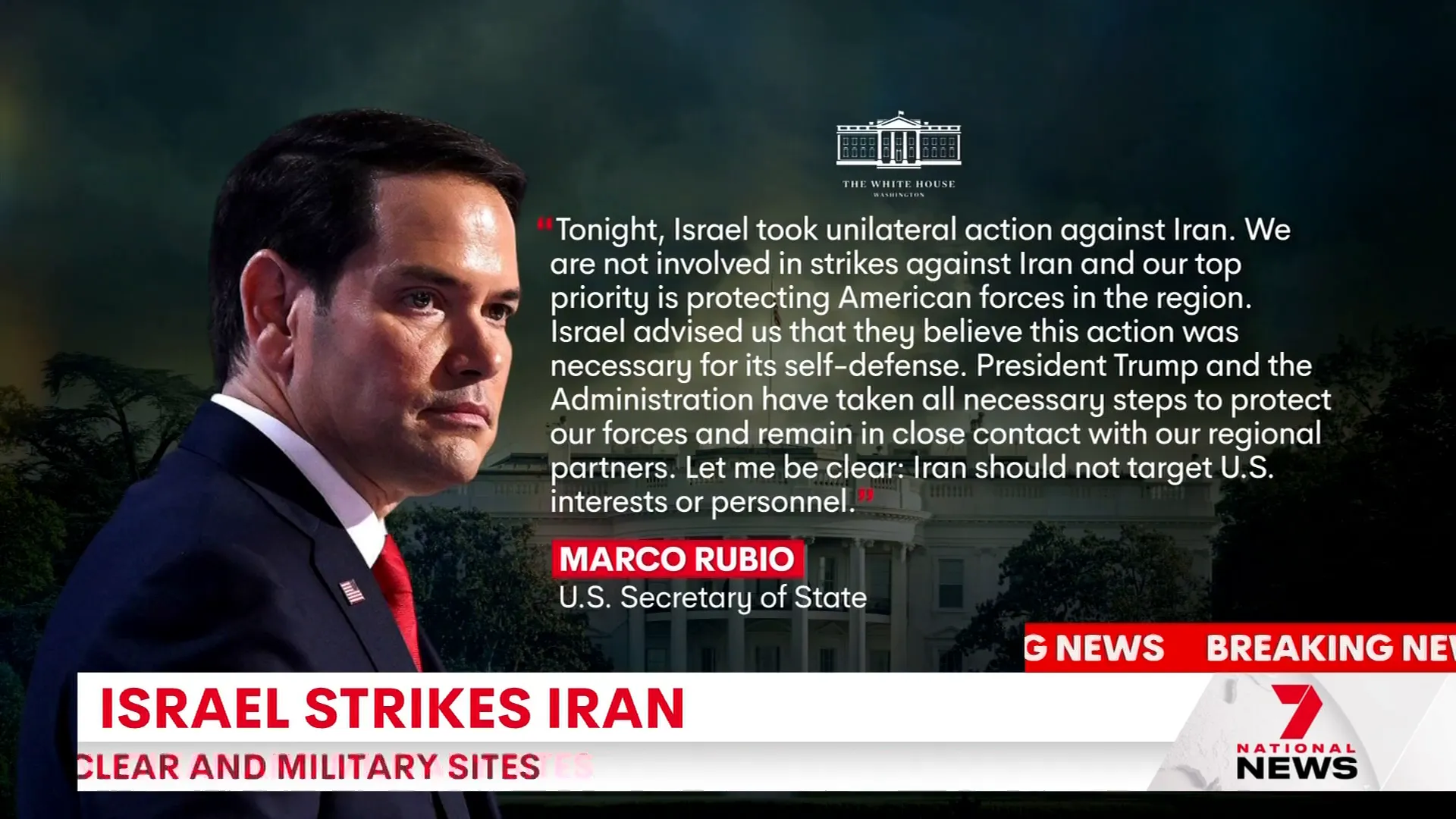
The presence of American military personnel in the region raises the risk that the U.S. could be drawn into the conflict if Iranian forces retaliate against American bases or facilities. This potential escalation adds a layer of complexity to an already volatile situation.
Meanwhile, Australia’s Foreign Minister Penny Wong urged caution and diplomacy, acknowledging the threat posed by Iran’s nuclear and ballistic missile programs but emphasizing the importance of dialogue over conflict:
“We all understand the need, the threat of Iran’s nuclear and ballistic missile program. It represents a threat to international peace and security, and we urge the parties to prioritize dialogue and diplomacy.”
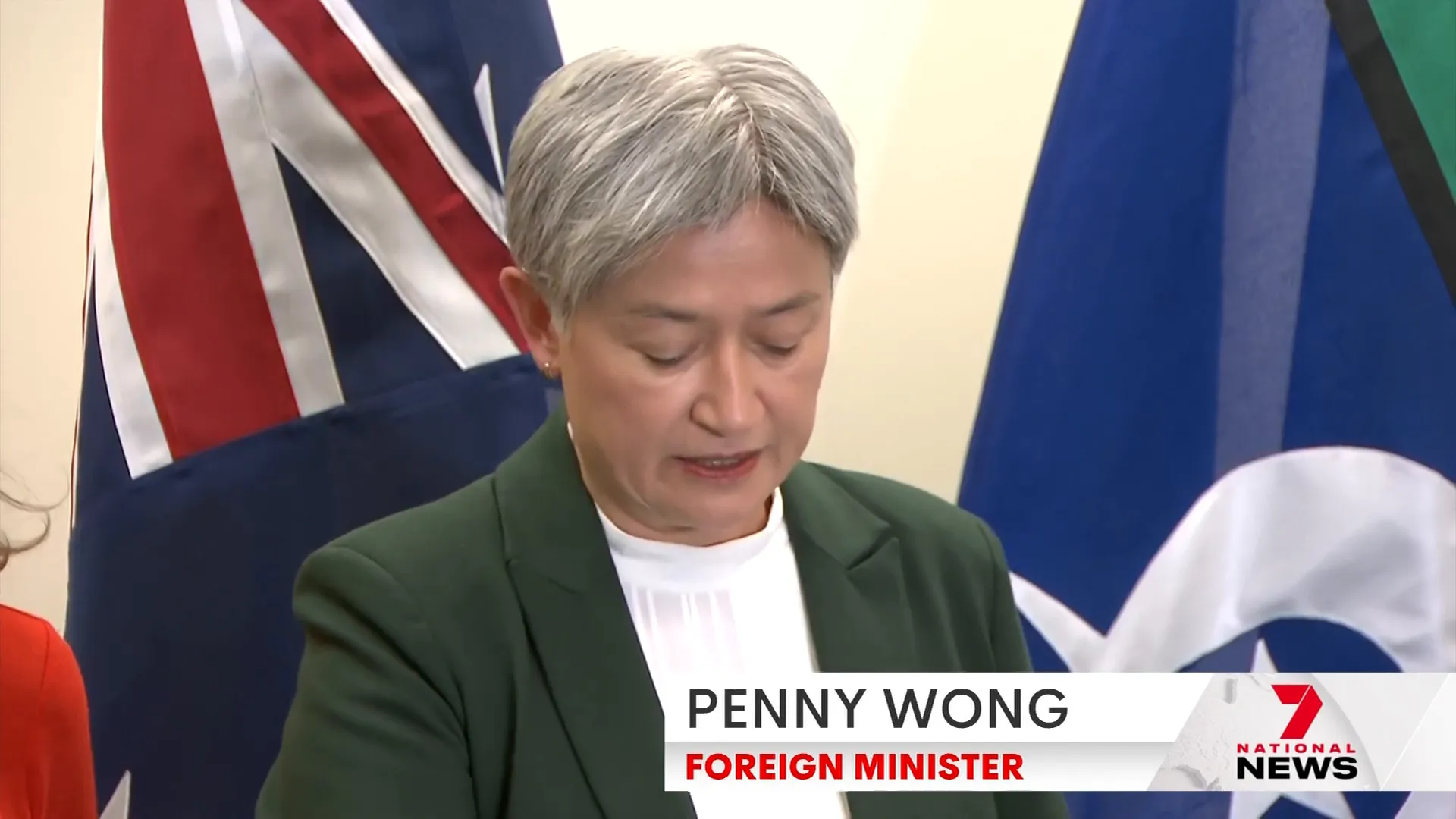
What’s Next? Israel’s Preparedness and Potential Retaliation
Israel has declared a state of emergency in response to fears of Iranian retaliation. In previous conflicts, Iran has launched rocket attacks against Israel, which were largely intercepted by Israel’s Iron Dome missile defense system. However, the scale and nature of possible Iranian retaliation this time remain uncertain, causing widespread concern.
The international community is watching closely, as any escalation could have far-reaching consequences beyond the Middle East, potentially involving major global powers and destabilizing energy markets.
Understanding the Broader Context of Israel-Iran Tensions
The conflict between Israel and Iran is rooted in deep ideological, political, and strategic differences. Iran’s nuclear program has long been a source of international tension, with many nations fearing the development of nuclear weapons in a volatile region.
Israel views a nuclear-armed Iran as an existential threat, given the hostile rhetoric from some Iranian leaders and Iran’s support for groups opposed to Israel. These tensions have fueled decades of proxy conflicts, covert operations, and diplomatic stand-offs.
The recent strikes represent a sharp escalation, moving from warnings and diplomatic pressure to direct military action. This shift could redefine the security landscape in the Middle East and trigger new alliances or conflicts.
Key Takeaways
- Israel’s air strikes on Iran targeted nuclear and military sites, with a focus on Tehran.
- Iran was reportedly days away from developing a nuclear bomb, according to Israeli military assessments.
- Civilian casualties have been reported by Iranian sources, raising concerns about the humanitarian impact.
- International reactions have been cautious, with the U.S. distancing itself and Australia calling for diplomacy.
- Israel is bracing for potential retaliation from Iran and has declared a state of emergency.
Frequently Asked Questions (FAQ)
Why did Israel strike Iran?
Israel launched strikes on Iran to target nuclear and military sites, aiming to prevent Iran from developing a nuclear weapon, which Israel views as an existential threat.
What has been the international response to the strikes?
The United States has distanced itself from the attacks, emphasizing protection of American forces and denying involvement. Australia has urged for dialogue and diplomacy to resolve the conflict peacefully.
What are the potential consequences of these strikes?
The strikes could lead to retaliation from Iran, escalating regional conflict. There is also a risk that the U.S. and other countries could become involved if their forces are targeted.
Has there been any confirmation of casualties?
Iranian sources claim that the strikes hit residential areas and caused civilian casualties, including children. Israeli sources confirm hitting military and nuclear targets but dispute the extent of civilian harm.
What is Israel’s current security status?
Israel has declared a state of emergency and is prepared for potential retaliatory attacks, relying on defense systems like the Iron Dome to intercept incoming threats.
Further Reading and Related Articles
- Breaking News Updates – Stay informed about ongoing global conflicts and breaking stories.
- Politics and Power – Explore in-depth analysis of international political dynamics.
- Opinion and Analysis – Gain insights into the implications of geopolitical events.
- Understanding Conflict and Security – Learn about the complexities of conflict and community safety.
As tensions continue to escalate between Israel and Iran, it remains crucial to monitor developments closely. The recent strikes signal a dramatic shift in the Middle East’s geopolitical landscape, highlighting the urgent need for diplomatic efforts to prevent further conflict and loss of life.